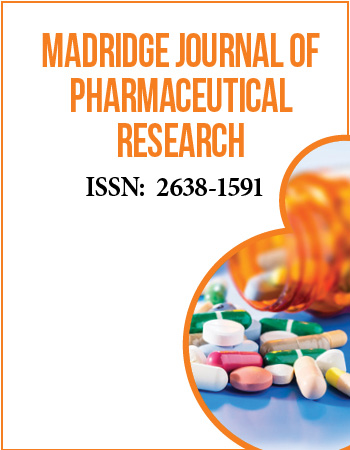International Conference on Medicinal and Pharmaceutical Chemistry
December 5-7, 2016 | Dubai, UAE
Ruthenium-conjugated synthetic flavonoid derivatives as novel modulators of platelet function
1School of Pharmacy, University of Reading, Reading, UK
2School of Pharmacy, University of Reading Malaysia, Malaysia
3Institute for Cardiovascular and Metabolic Research, University of Reading, UK
*Authors DR, MS and AA, and ♯HMIO and SV contributed equally to this work.
Background: Platelets (small circulating blood cells) play indispensable roles in the regulation of haemostasis via blood clotting. However, their inappropriate activation leads to thrombosis, which obstructs blood flow to major organs such as heart and brain resulting in heart attack and stroke respectively. Hence, platelets act as a promising target to treat/prevent cardiovascular diseases (primarily thrombotic diseases). Direct relationships between cardiovascular health and dietary flavonoids have been extensively studied for a long period. Nevertheless, numerous challenges are associated with the use of dietary components in biological systems for the prevention and treatment of diseases. Some of these include the poor absorption in intestine, the reduced bioavailability in blood stream, inability to readily cross the cell membranes and their modest stability in biological systems. Here, we report the design, synthesis, chemical characterisation and biological evaluation of Ruthenium complexes of chrysin(a natural flavonoid), and its synthesised thioflavone derivative for the modulation of platelet function and thrombus formation.
Methods and Results: In this study, we analysed the effects of chrysin in the modulation of platelet reactivity using washed human platelets and platelet-rich plasma by optical aggregometry. Similar to other flavonoids, chrysin displayed substantially reduced effectswhen platelet-rich plasma was used in comparison to washed platelets. In order to intensify the effects of chrysin under physiological conditions such as in whole blood, its sulphur (thio-chrysin) and Ruthenium (Ru-chrysin and Ru-thio-chrysin) conjugated synthetic derivatives were synthesised and characterised. The effects of synthetic chrysin derivatives were examined in platelets using a variety ofplatelet functional assays such as aggregation, the measurement of fibrinogen binding and P-selectin levels, calcium mobilisation and in vitro thrombus formation. In comparison to natural chrysin, Ruthenium- conjugated chrysin derivatives, specifically Ru-thio-chrysin significantly reduced distinctive functions of plateletsand thrombus formation under arterial flow conditions at minimum of 6.25µM. Together, these results demonstrate that Ruthenium- based synthetic chrysin derivatives exert enhanced inhibitory effects in platelets under physiological conditions.
Conclusions: This study highlights the importance of Ruthenium-conjugated synthetic flavonoid derivatives in the modulation of platelet function and thrombus formation. Due to their numerous beneficial effects in biological systems, Ruthenium-conjugated molecules will be greatlyvaluable in therapeutical applications for the prevention and treatment of cardiovascular (particularly thrombotic) diseases.
Biography:
Dr. Sakthivel Vaiyapuri is a Lecturer in Pharmacology in the School of Pharmacy at the University of Reading, UK. I completed my Bachelors in Biochemistry at Bharathidasan University and Masters in Biotechnology at the University of Madras, India. Ireceived my PhD in the field of snake venoms and postdoctoral experience in cardiovascular diseases with specific interest on platelet signalling from the University of Reading. Currently, my research group involved in the functional characterisation of inflammatory molecules such as formyl peptide and toll-like receptors in the modulation of platelet function at the interface between thrombosis and inflammation. With the better understanding of these receptors, we develop target-specific chemical molecules in collaboration with colleagues in Pharmaceutical chemistry and evaluate their biological effects in the modulation of thromboinflammatory responses. Furthermore, we are also engaged in analysing the toxic components of snake venoms and their impact on various functions of cardiovascular system.


